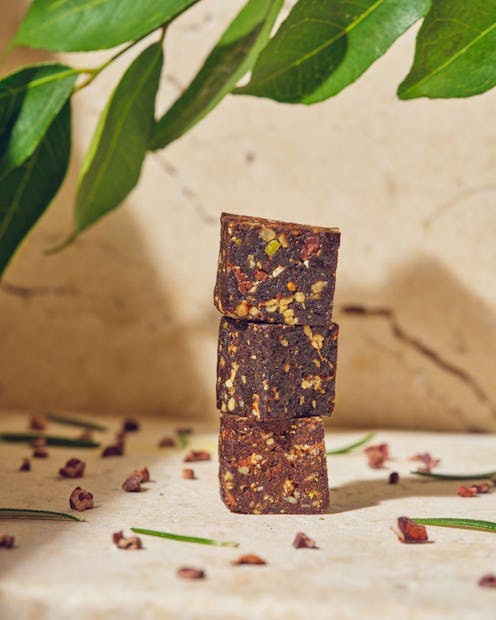(Nutrition)
Red Algae — Good For You Or All Hype?
We take a deep dive.

While one of the biggest wellness trends may be news to you, it's actually been utilized for its health benefits for thousands of years. Different forms of algae — like spirulina and chlorella — have been touted for their ability to help lower blood sugar, detox heavy metals, and improve gut health, among a host of other uses. But it's another form that's been especially buzzy in the nutrition world of late and it's got a lot of people asking, is red algae good for you?
These days it seems like every day there's a new all-natural wellness trend to learn about, such as mushrooms that help you adapt to stress, energy-boosting bee pollen, or the protein-packed chocho bean that's also gentle on your digestive system — all of which have been abuzz in the wellness word recently. According to certified nutritionist Cara Clark of Cara Clark Nutrition, red algae might just be the latest one to add to your regimen. "Red algae is a part of the Rhodophyta class of algae; it's a sea vegetable and rich in protein, fiber and an array of vitamins," says the pro, who works with TV stars and top athletes. "Eastern culture has long used the superfood, but it's gaining headway in our culture just like chlorella and spirulina."
So why should you be paying attention and how does this superfood impact your overall health? According to Clark, red algae has been shown to increase blood circulation, regulate blood sugar levels, and lower LDL or bad cholesterol, as well as improve your immune system overall. "Someone struggling with insulin resistance issues or someone trying to naturally combat cholesterol levels and anyone trying to improve their immune health would be a good candidate for red algae," she says. "Vegetarians and vegans would also highly benefit from consuming red algae."
Although Clark recognizes the ways incorporating red algae into your nutrition plan could potentially boost your overall health, she's also quick to point out the jury may still be out on who shouldn't try out this trend. One of the most reported side effects is an upset stomach or constipation. That said, she advises talking to your doctor or stopping if you experience stomach cramping or any irritation after ingesting.
As for how to try this trend, one of the easiest ways might be enjoying a food you probably already have on a regular basis. "Sushi is a great way to consume more red algae since nori sheets are primarily used to roll sushi," Clark says. "Dulse is another form of red algae and you can add either one to salads, soups or stir-fries. They boast 10g of protein per serving, which is much higher than any other plant-based protein option." And red algae has also found its way into supplements, be it in capsule form or a tasty, daily vitamin packed with a slew of other super ingredients. Ahead, find a few options if you're interested in giving this buzzy superfood a whirl.
We at TZR only include products that have been independently selected by our editors. We may receive a portion of sales if you purchase a product through a link in this article.
This article was originally published on